- Home
- international
- news
- 10 things you may have missed in the news in the past week
10 things you may have missed in the news in the past week
Natalie Colarossi

- The coronavirus pandemic has dominated headlines over the past couple of months, as countries scramble to contain their outbreaks and death counts continue to climb higher each day.
- But news is happening outside of this crisis.
- From Joe Biden's fundraising struggles to the abduction of a Saudi princess, here are 10 major news events you may have missed this past week.
- Visit Business Insider's homepage for more stories.
The coronavirus pandemic has swept the globe, infecting more than 2.6 million people and killing at least 186,000 as of April 23, according to Johns Hopkins University.
At a time when countries are scrambling to prop up their economies, ramp up testing efforts, and lower their infection counts, the news cycle is continuously dominated with pandemic headlines.
But there is still news happening outside of the crisis.
Here are 10 major world events you may have missed in just the past week, as COVID-19 news continues to take center stage.
Read the original article on Business InsiderMexican drug cartels have taken a blow since public health lockdowns in China have halted the supply of chemicals used to make synthetic opioids. In some cases, the shortage has led to inflated drug prices.

Mexican drug cartels that rely on chemicals from China in order to make synthetic opioids have been disrupted amid coronavirus lockdowns.
The scarcity of chemicals has caused street prices for drugs to go up in some places, including Los Angeles where the cost of methamphetamine has doubled to roughly $1,800 per pound.
A report by the Associated Press concluded that China's lockdowns have dried up the supply of chemicals used to make fentanyl and methamphetamine, making those drugs more expensive and difficult to produce.
Production of synthetic drugs has gained popularity among cartels in recent years, since they don't require agricultural labor like plant-based drugs such as marijuana or heroin do.
Synthetic opioids are about 10,000 times more potent than morphine, cheaper to make than heroin, and had been providing more income to cartels — until lockdowns began posing a threat to production capabilities.
Smuggling drugs across the US-Mexico border has also become more difficult as traffic has significantly declined, making it harder to slip through unnoticed. And since bars and nightclubs across the country have been shuttered across the country, demand for drugs has changed.
Iran reported launching its first ever military satellite into orbit. The US has yet to confirm the launch, but says it could advance Iran's missile program.

This week, the Islamic Revolutionary Guard Corps of Iran announced that it had successfully launched its first military satellite into orbit about 265 miles above Earth's surface.
The launch has not yet been confirmed by the US State Department. It follows Iran's multiple failed attempts to launch satellites into orbit in recent months.
The Guard Corps — which was established 40 years ago and has since become a prominent military, political, and economic entity directly under the leadership of Ayatollah Ali Khamenei — announced that the satellite was launched from Iran's Central Desert.
The US has said that these types of launches are in direct conflict with a UN resolution that calls on Iran to refrain from activity related to missiles that can deliver nuclear weapons. American officials worry that satellite launches could help Iran develop such capabilities.
An abducted Saudi princess broke her silence for the first time since her disappearance 13 months ago — and a family member told Insider they think she's being held against her will to keep her from claiming a share of a multibillion dollar inheritance.
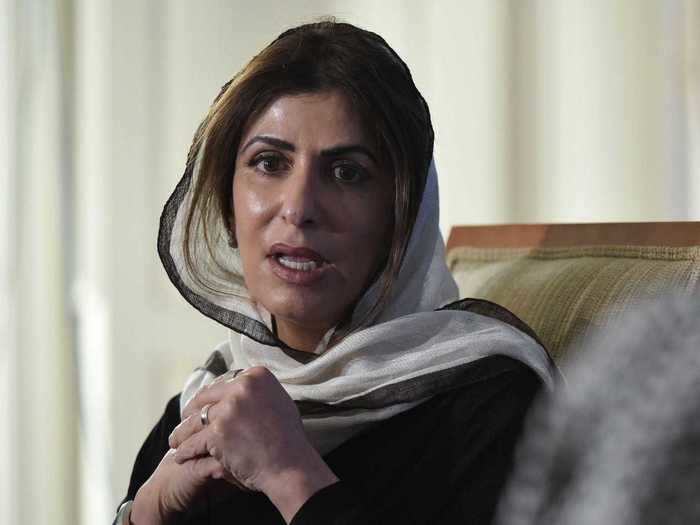
Princess Basmah disappeared in March 2019, after suspicions that she was trying to "flee the country" on a trip she had scheduled to Switzerland to receive medical care.
But last week, the princess broke her silence for the first time in 13 months in a plea for freedom via Twitter. The message was directed at her cousin, Crown Prince Mohammed bin Salman.
"I am currently being arbitrarily held at Al-Ha'ir prison without criminal, or otherwise any charges against my person," her Twitter account said.
The information shed light on her disappearance and wellbeing. A family member told Insider's Bill Bostock that Basmah did not have access to her phone, but that the message was sent from her royal office.
The tweet also included information that her health was in serious decline, and that if she did not receive critical medical care soon, she could die.
The princess is the daughter of King Saud, who ruled Saudi Arabia from 1953 to 1964 until his brother overthrew him.
The family member who spoke to Insider alleged that Basmah's detention was to derail her from claiming access to a multibillion dollar inheritance that was previously promised to her father.
For more information on this compelling story, read here.
Nicaragua's president finally stepped out in public, after disappearing for a month.
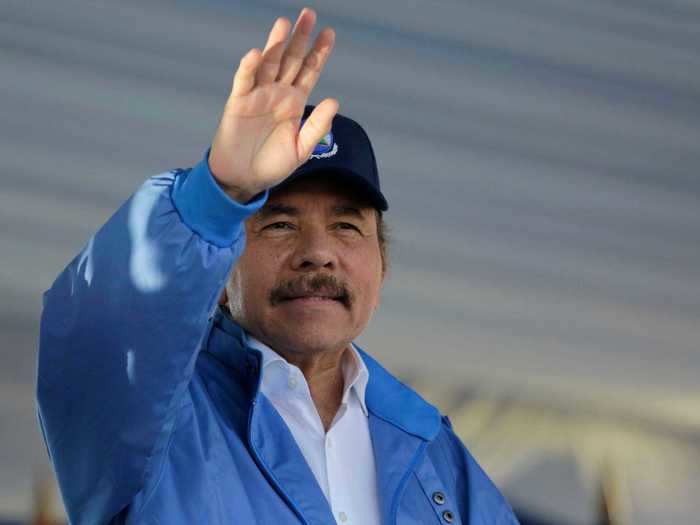
Nicaragua's 74-year old president finally appeared in the public last week for the first time since March 12.
Ortega's absence has sparked concern amid the coronavirus pandemic, as Nicaragua has yet to address the virus outbreak through policy changes such as social distancing or shuttering businesses.
Human Rights Watch has noted that Ortega is "the only Latin American leader who has not made a single public announcement on how his government would address the pandemic."
Rumors have circulated that Ortega disappeared due to chronic illness or issues related to the coronavirus. Others, including the leader of a Nicaraguan opposition group, Juan Sebastián Chamorro, thought it was a political stunt used to gain public support.
Ortega's mysterious whereabouts during that time period are still unknown.
A federal court struck down Trump's efforts to roll back Obama-era nutritional guidelines for school lunches.

Last week, the US District Court for the District of Maryland struck down Trump's 2018 efforts to repeal nutritional standards that the Obama administration placed on sodium and whole grains for school meals.
The food standards, once championed by former first lady Michelle Obama, set targets to significantly lower sodium levels and ease in requirements that would eventually make all grain products in school lunches whole grain.
But in 2017, the Trump administration signed an interim rule significantly loosening those requirements, allowing schools to extend the amount of time before they reduced their sodium levels, and granting states permission to apply for waivers for the whole grain requirements.
Then, in 2018, Trump published a finalized rule weakening those requirements even further, by fully eliminating one of the sodium targets and telling schools they only needed to transition to 50% whole grain.
Because of the inconsistencies between the interim rule and the finalized rule, the federal court ultimately ruled that Trump's rollbacks violated the Administrative Procedure Act, making it null.
The sodium and whole grain rules were just one of many cases of the Trump administration working to repeal Obama-era nutritional guidelines.
A Republican-led Senate review unanimously agreed that Russia interfered in the 2016 election, undercutting claims by Trump and his allies that the previous intelligence assessments were wrong.
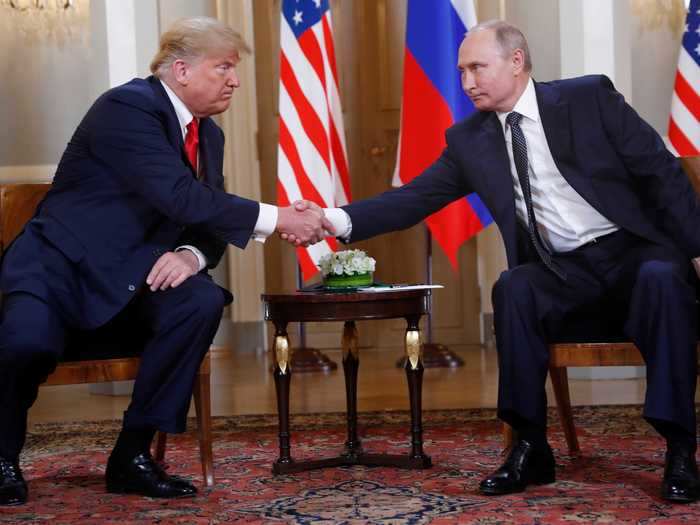
The Senate Intelligence Committee, led by members of the Republican party, unanimously agreed that Russia interfered in the 2016 political election — marking a blow to the Trump, who has sought to dismiss those claims for years.
The decision falls in line with a 2017 US intelligence report, which blamed Russia for undermining American democracy and tainting the 2016 election cycle in Trump's favor.
Trump has denied the findings for years, claiming the results were meant to undermine his political victory.
But the new report concludes that even a three-year long bipartisan review led by members of his own party has found the intelligence assessment to be both accurate and unmotivated by political gain.
"The case is closed," Sen. Angus King, independent of Maine, told The New York Times. "I don't know how you could have a much more credible source than a three-year study by a bipartisan committee that came to a unanimous conclusion."
A 150-foot long marine creature — possibly the world's longest animal — was discovered off the coast of Australia.

An approximately 150-foot long siphonophore — a string-like ocean creature made up of clusters of cells that can clone themselves thousands of times — was recently found near the coast of Australia.
Researchers believe it's the longest ocean creature ever recorded.
A research team with the Schmidt Ocean Institute made the discovery. They've set out on a year-long expedition to explore the seas of Australia and the Pacific Ocean.
The enormous creature was found floating nearly 2,000 feet below their research vessel off the coast of Western Australia, and marked the first sighting of a siphonophore in that area. Some researchers compared the animal to a UFO, while others thought it looked like a massive pile of Silly String.
In addition to the siphonophore, the research team discovered up to 30 new species, and recorded more than 180 hours of underwater footage.
Questions over Kim Jong Un's health have circulated after the North Korean leader missed a major public holiday.
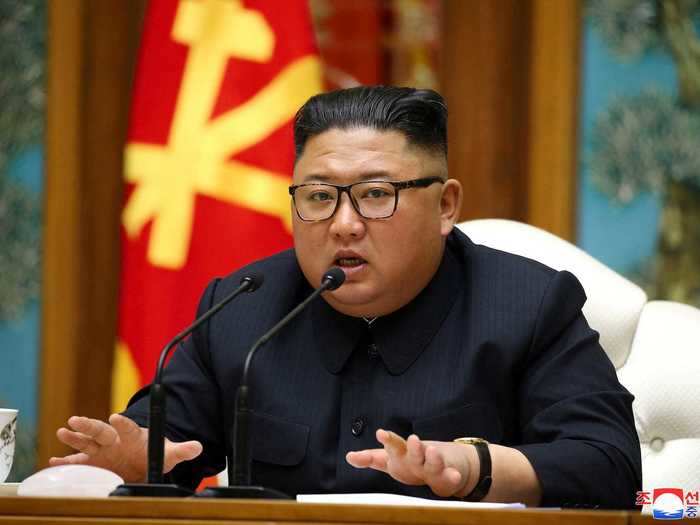
Questions over the health of the North Korean dictator have swirled, following his absence from a prominent holiday.
According to DailyNK, a South Korean based website that includes information from North Korean defectors, Kim underwent a cardiovascular procedure on April 12. His last appearance was recorded on April 11.
A US official with knowledge of the incident told CNN that "the US is monitoring intelligence that North Korea's leader, Kim Jong Un, is in grave danger after a surgery."
The US State Department has not yet confirmed those details. A Chinese official associated with North Korean affairs told Reuters that the leader is not believed to be critically ill.
The Washington Post's Anna Fifield, an expert on Kim, offered her take: "We always need to be extremely cautious about speculation from North Korea because it's very difficult to verify. But these latest rumors are gaining traction because Kim is so obviously in such bad shape."
This is not the first time the leader has gone missing or been questioned about his health. In 2014, he was reportedly unseen for six weeks before reemerging with a walking cane, and officials have questioned his wellbeing after South Korean doctors concluded he was severely obese.
Trump, who has a maintained a friendly relationship with Kim, said he was unsure of his health status, but wished him "good luck."
Canada's deadliest mass shooting in history left at least 21 people dead, plus the gunman.

Over the weekend, a 51-year old gunman in Nova Scotia disguised himself as a police officer and went on a 12-hour killing spree, leaving at least 22 people dead — including himself — in the worst shooting in Canadian history.
The gunman began the rampage in the beachside town of Portapique. Nearly 13 hours later, he had killed at least 22 people across 30 miles, and set five buildings and his car on fire.
While the police are still searching for a motive, it appeared that the attacker knew at least some of his victims, but continued on with the spree at random. Every victim was an adult, and the dead included police officers, nurses, and an elementary school teacher.
Presumptive Democratic nominee Joe Biden is nearly $187 million behind President Donald Trump in campaign funding for the 2020 election.
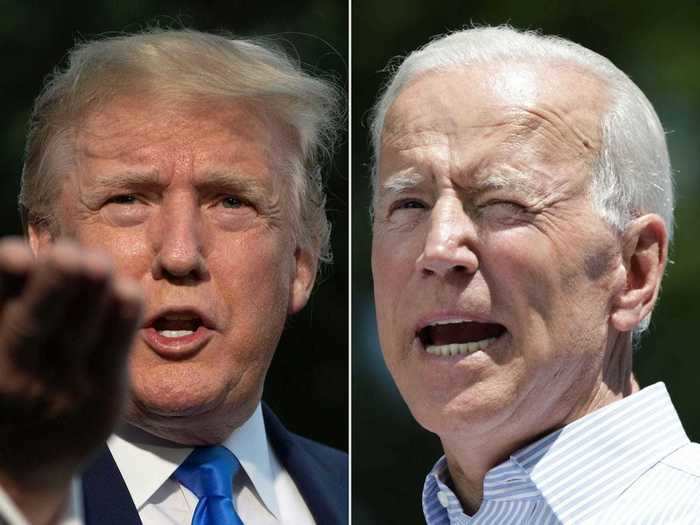
The former vice president began the month of April with $57.2 million for his 2020 presidential fundraising campaign, compared to Trump's $244 million — an $187 million difference.
At this point in the race, even if Biden raised nearly $1 million every day from now until the election in November, he would have a difficult time catching up to Trump's level of funding.
But Democratic leaders aren't too worried, citing Trump's handling of the coronavirus pandemic as a bigger challenge than fundraising setbacks.
Ian Russell, a Democratic strategist and a former deputy executive director of the DCCC, told Business Insider's Eliza Relman that "Trump's bungling of the coronavirus preparation and response is a fundamental problem for his re-election that even his current financial advantage can't paper over."
READ MORE ARTICLES ON
Popular Right Now
Popular Keywords
Advertisement